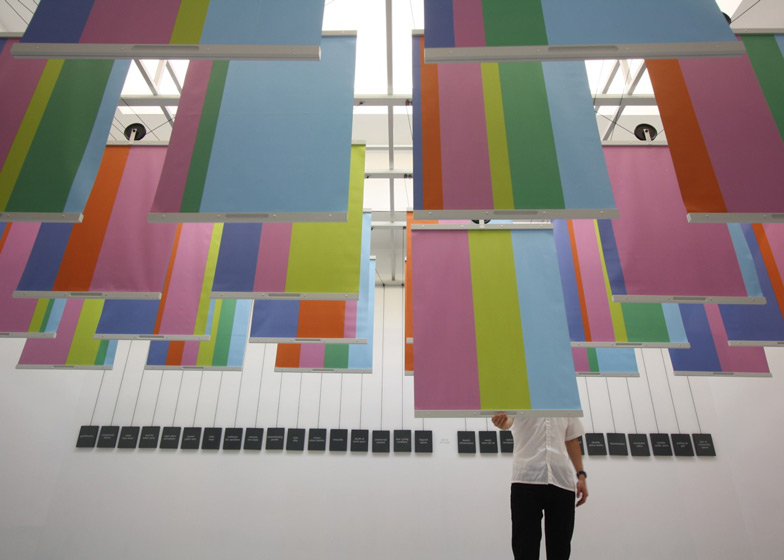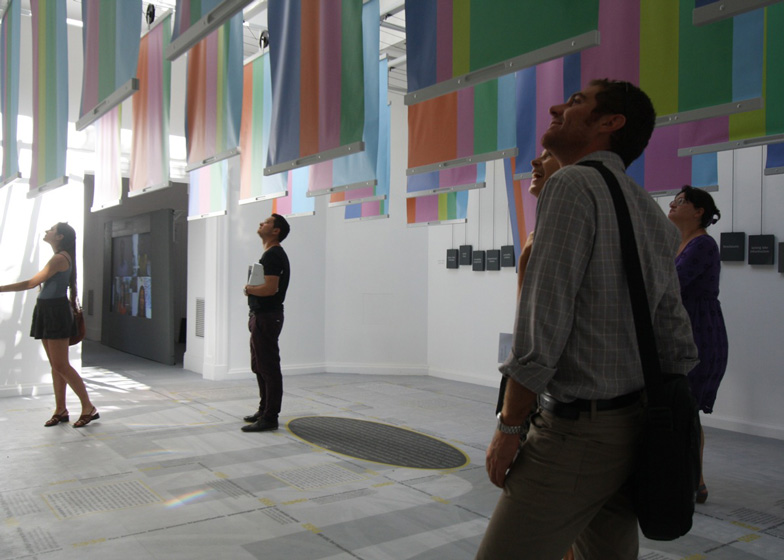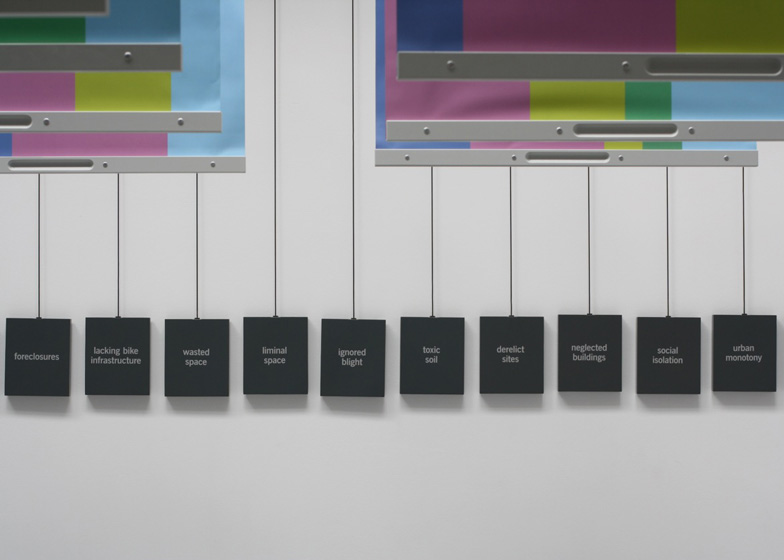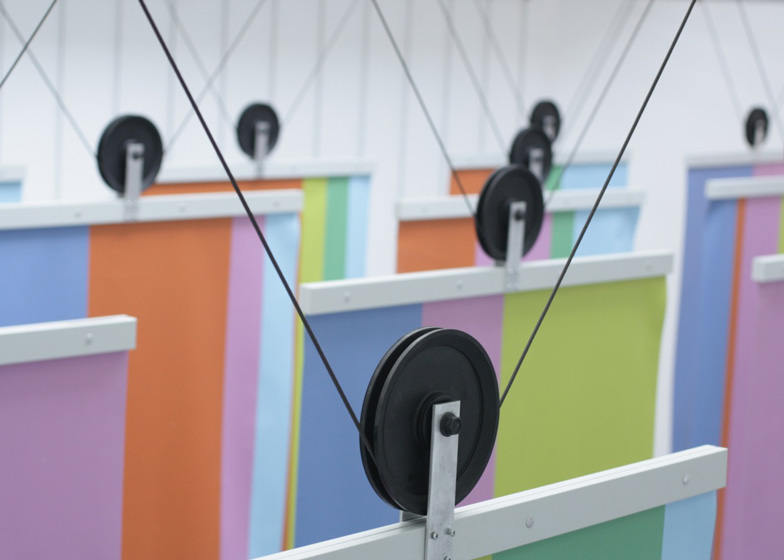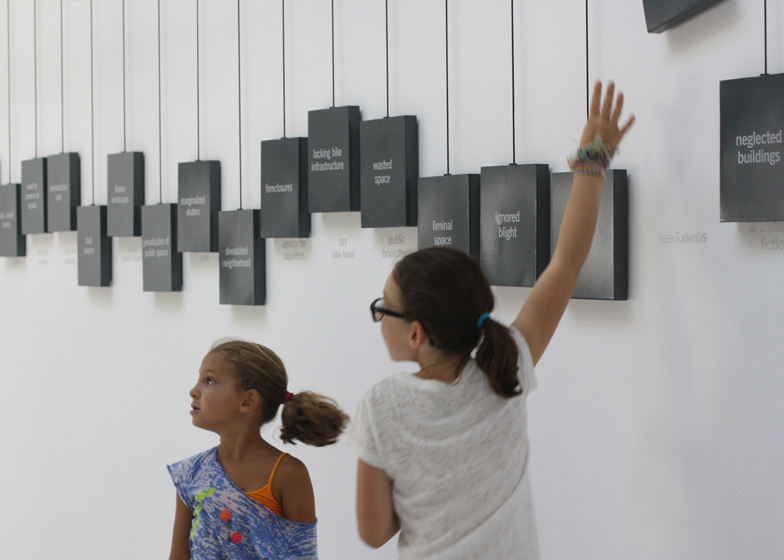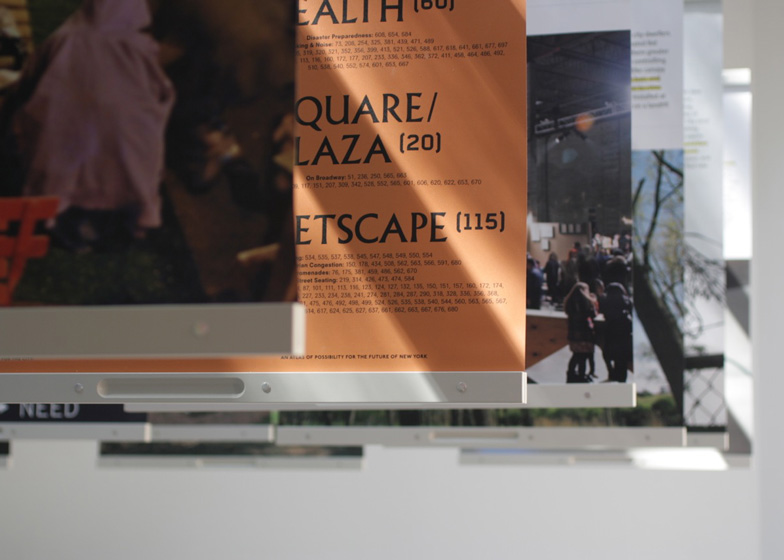Urban improvement projects in neighbourhoods across America are presented on stripy blinds that can be pulled down from the ceiling of the United States Pavilion at the Venice Architecture Biennale 2012 (+ slideshow).
Above: photograph is by Dezeen
The panels are connected to a system of pulleys and counterweights, which are labelled with the names of the problems identified by each project.
As visitors pull the panels down to eye-level, the corresponding rectangular weights lift up to reveal how each problem was resolved.
A total of 124 projects are illustrated across the four rooms of the pavilion and include seedbomb vending machines, guerrilla bike lanes, a pop-up wedding chapel, a mobile farm and a tree-measuring kit.
Above: photograph is by Dezeen
A graphical timeline covers the floor, placing the projects alongside their historical predecessors.
See our pick of the five best pavilions here, including the shape-shifting Dutch pavilion and the QR code-covered Russian pavilion.
Above: photograph is by Dezeen
See all our stories about the Venice Architecture Biennale »
Photography is by Freecell, apart from where otherwise stated.
Here's some information from the organisers:
SpontaneousInterventions: Design Actions for the Common Good
United States Pavilion
The U.S. Pavilion at the 13th International Architecture Exhibition - La Biennale di Venezia, organized by the Institute for Urban Design on behalf of the U.S. Department of State’s Bureau of Educational and Cultural Affairs, is devoted to the theme SpontaneousInterventions: Design Actions for the Common Good.
Above: Greenaid Seedbomb Vending Machine by COMMONstudio
The exhibit features 124 urban interventions initiated by architects, designers, planners, artists, and everyday citizens that bring positive change to their neighborhoods and cities. The selection was narrowed down after a search process that included an open call for projects realized in U.S. cities in recent years, which yielded over 450 submissions.
Above: Edible Schoolyard New York City by WORKac
SpontaneousInterventions captures one of the most compelling contemporary urban trends, wherein individuals are taking it upon themselves to create projects that expand the amenities, comfort, functionality, inclusiveness, safety, and sustainability of cities. From parklets to community farms, guerrilla bike lanes to urban repair squads, outdoor living rooms to pop-up markets, sharing networks, and temporary architecture, Spontaneous Interventions highlights viable citizen-led alternatives to traditional top-down urban revitalization tactics.
Above: Ghost Bikes
Together, these projects offer an opportunity to examine the history of the American city, painting a critical and dynamic portrait of its most pressing issues today and a vision of its future. At heart, SpontaneousInterventions is a reflection of country’s complex attitudes towards civic participation, social justice, and the built environment.
Above: Guerrilla Bike Lanes
SpontaneousInterventions—curated by Cathy Lang Ho (Commissioner and Curator), David van der Leer, and Ned Cramer (co-curators)—resonates on many levels with the overall theme of the Biennale, conceived by director David Chipperfield, Common Ground. The projects featured in Spontaneous Interventions are characterized by their interest in collaboration, in serving the collective needs of a community, and in improving the literal common ground— public space. The exhibition examines how urban actions that originated as radical ideas have moved ever closer to the center, evolving from subversive tactic to increasingly accepted urban strategy.

